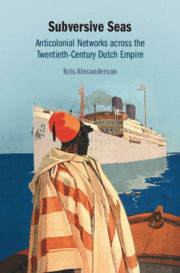Crossref Citations
This Book has been
cited by the following publications. This list is generated based on data provided by Crossref.
2019.
Bibliography.
International Review of Social History,
Vol. 64,
Issue. 3,
p.
563.
Harris, Richard
2021.
The Urban Question.
Jourde, Cédric
Brossier, Marie
and
Gomez-Perez, Muriel
2021.
The politics of the Hajj organisation in Senegal: security, legitimation and clientelism.
The Journal of Modern African Studies,
Vol. 59,
Issue. 1,
p.
1.
Bloembergen, Marieke
2021.
The Politics of “Greater India,” a Moral Geography: Moveable Antiquities and Charmed Knowledge Networks between Indonesia, India, and the West.
Comparative Studies in Society and History,
Vol. 63,
Issue. 1,
p.
170.
Sayım, Burak
2022.
Occupied Istanbul as a Cominternian Hub: Sailors, Soldiers, and Post-Imperial Networks (1918–1923).
Itinerario,
Vol. 46,
Issue. 1,
p.
128.
Raksaperdana, Ikrar
and
Kurniawan, Kemas Ridwan
2022.
Proceedings of 2021 4th International Conference on Civil Engineering and Architecture.
Vol. 201,
Issue. ,
p.
633.
Sayim, Burak
2023.
Of Transits and Transitions: Moscow-Bound Travels of Foreign Communists as a Transformative Experience, 1919–1939.
Revolutionary Russia,
Vol. 36,
Issue. 1,
p.
100.
Guy, Richard
2023.
The Transformation of Maritime Professions.
p.
121.
Ewertowski, Tomasz
2024.
Bodies in networks: steamship mobilities and travel between Europe and Asia, 1869–1891.
Mobilities,
Vol. 19,
Issue. 2,
p.
227.
de Zwart, Pim
Lampe, Markus
and
O'Rourke, Kevin Hjortshøj
2024.
The last free traders? Interwar trade policy in the Netherlands and Netherlands East Indies.
The Economic History Review,
Vol. 77,
Issue. 3,
p.
1057.





